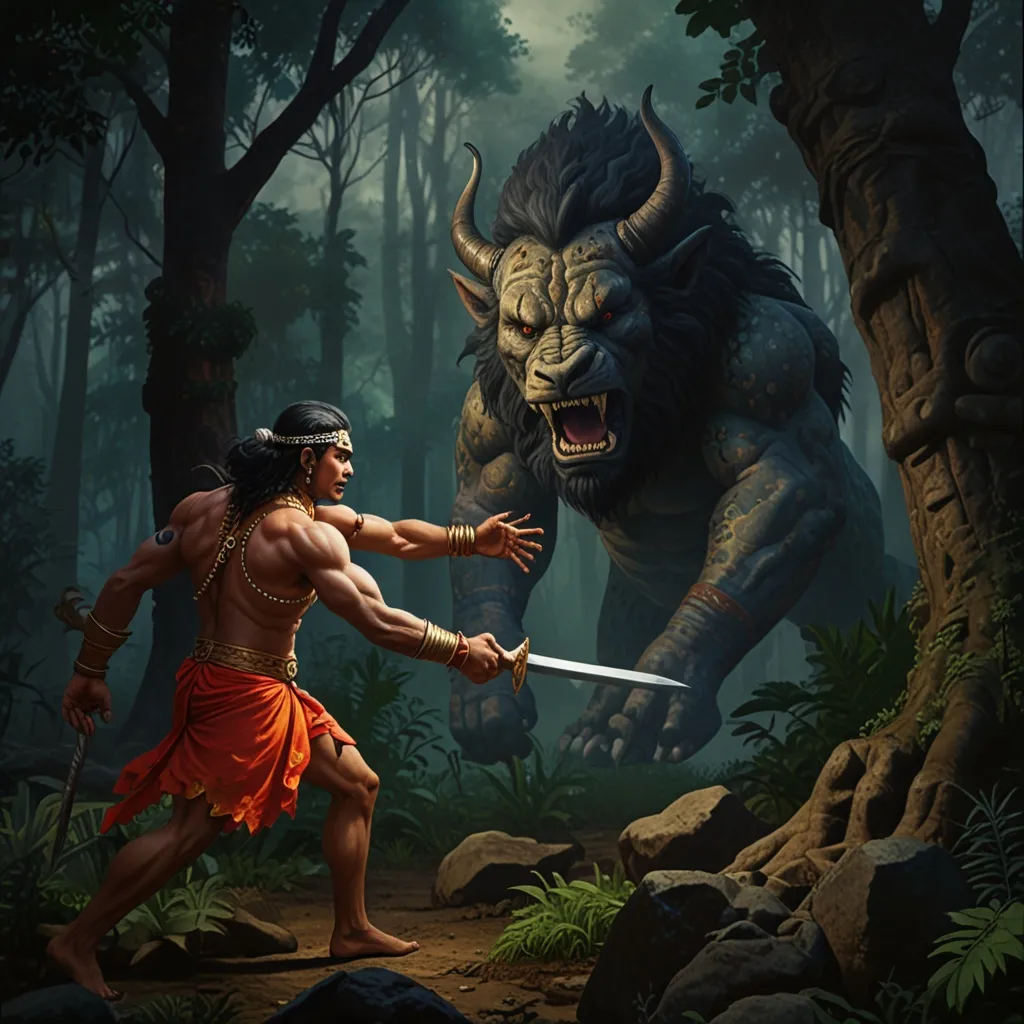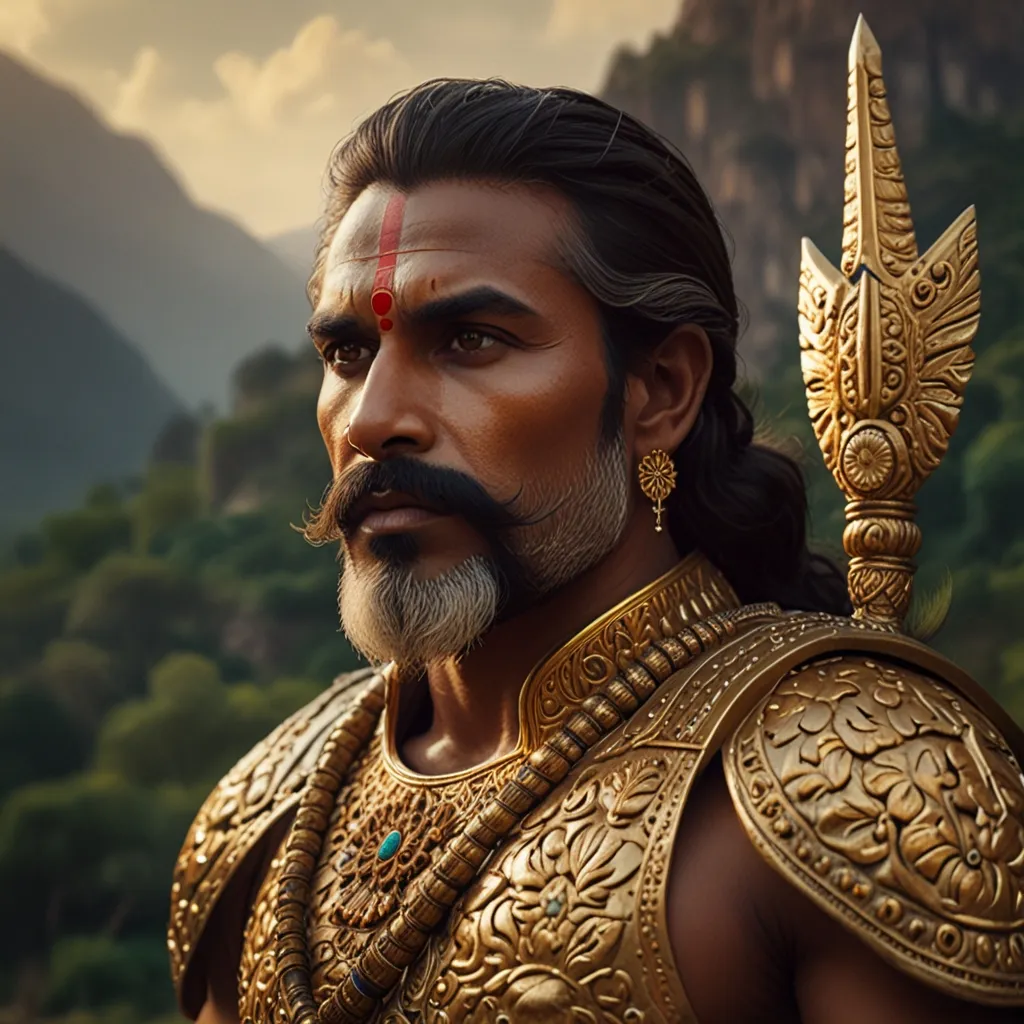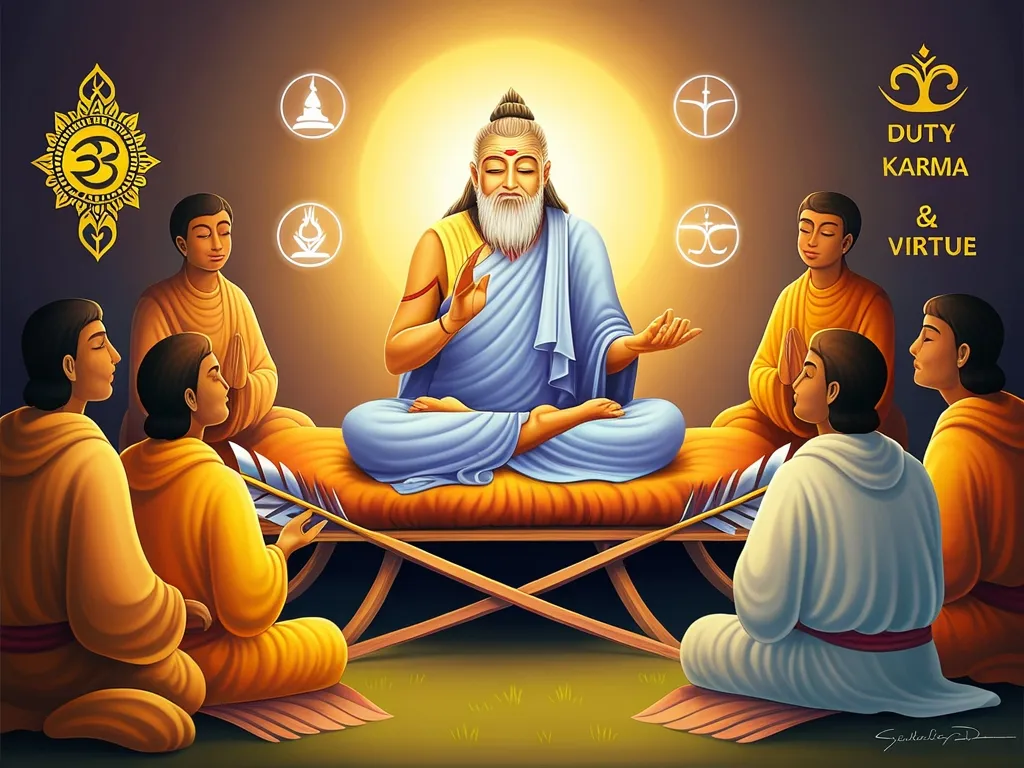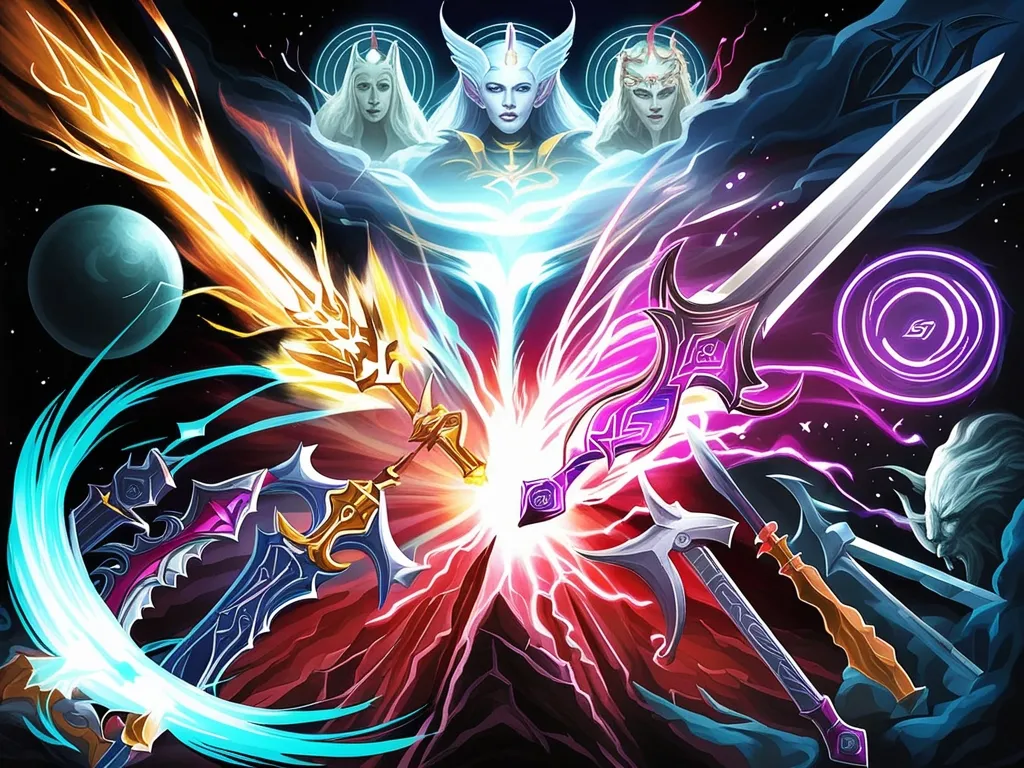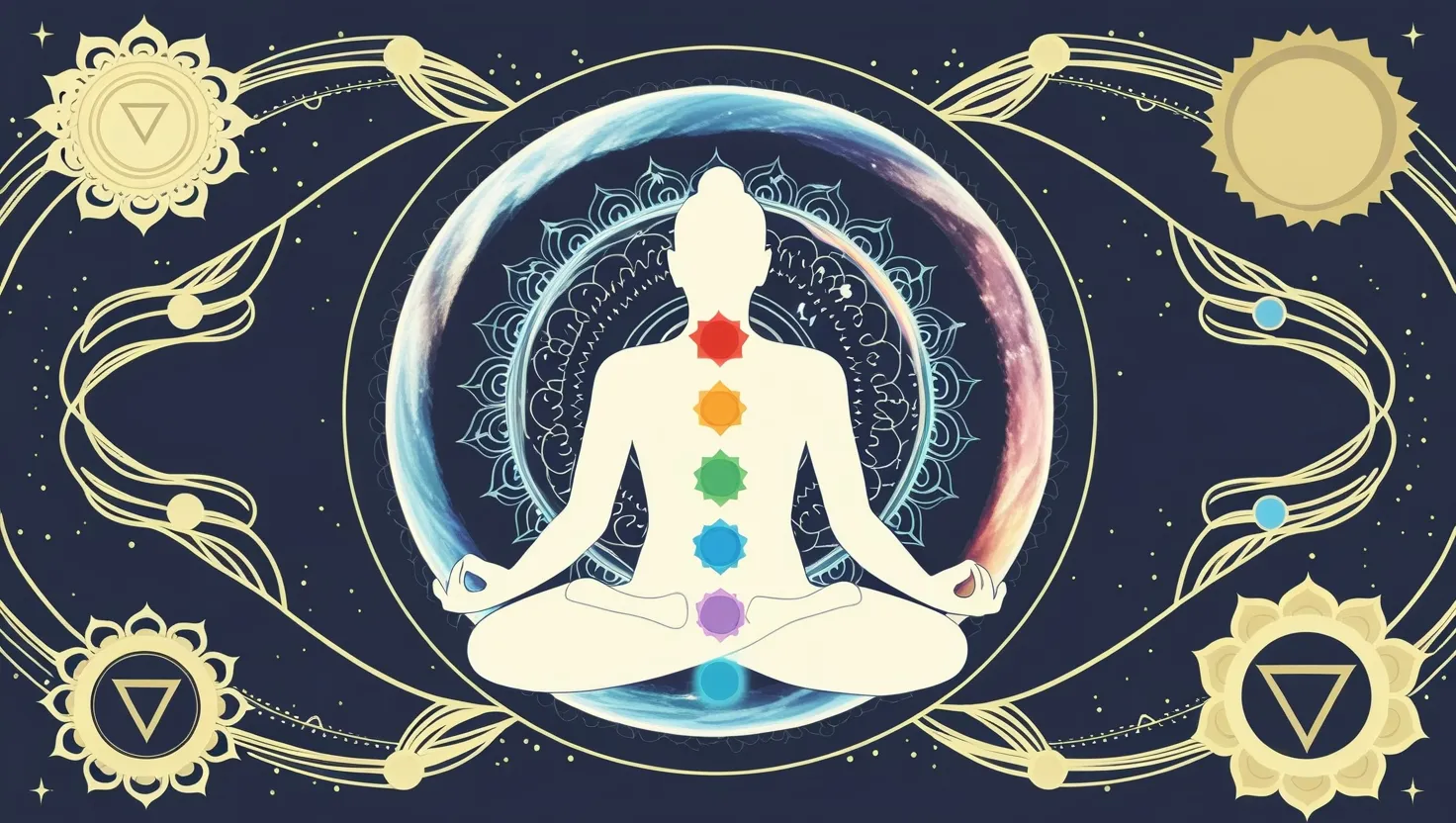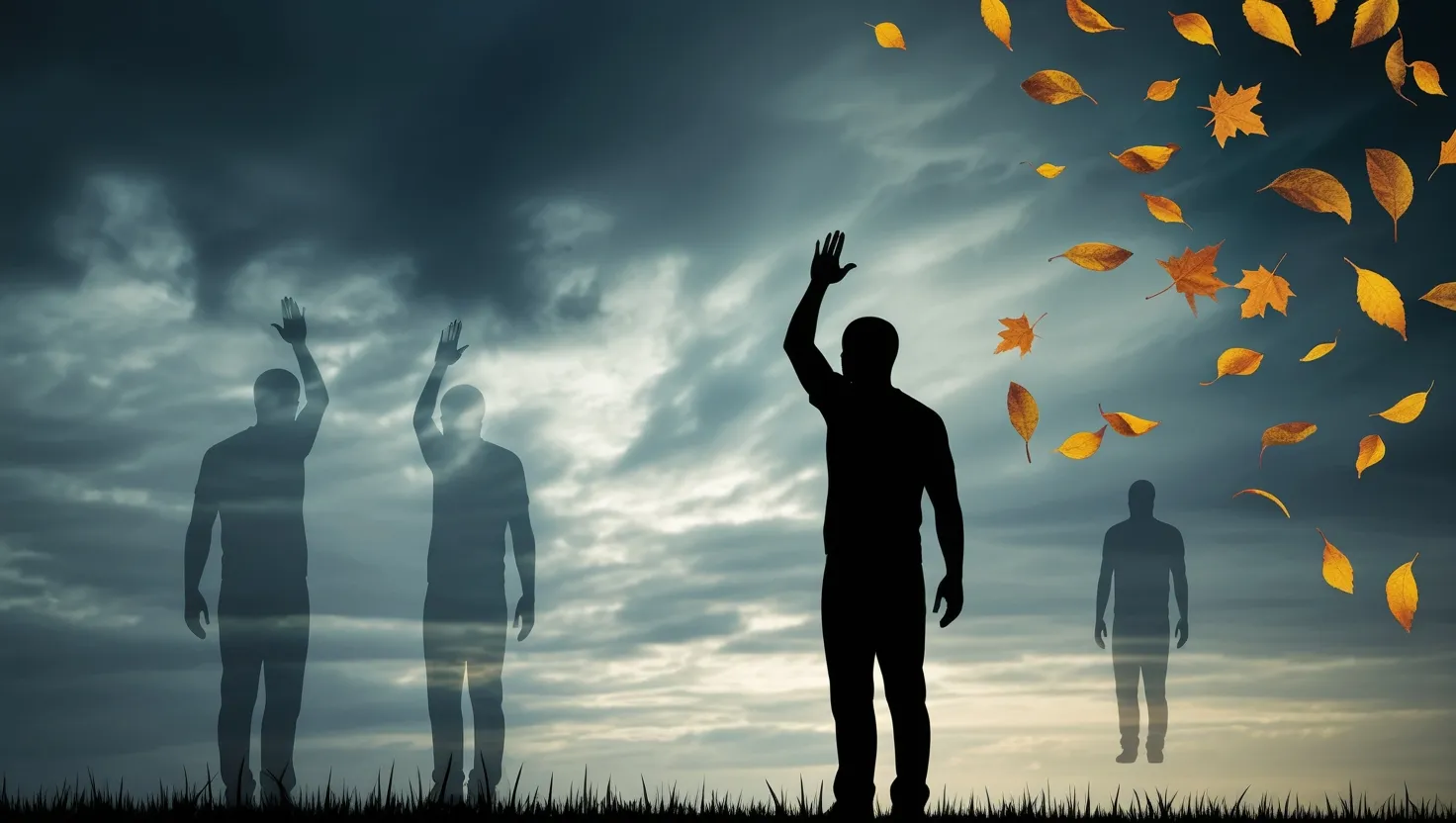In the ancient tales of the Mahabharata, there’s the hair-raising story of a demon named Baka causing chaos in a small village. Baka was a rakshasa, a fierce and strong demon who lived in a forest nearby. His antics brought nothing but fear and dread to the villagers, as he would often snatch people right from the village to satisfy his hunger. Life in that village was tough, constantly overshadowed by the looming threat of Baka.
The villagers were so desperate to keep their families safe that they struck a deal with Baka. They decided to send him a cartload of food every day, along with one person to be his meal. It was a grim arrangement, as every day someone had to be sacrificed to appease the demon. This deal didn’t really help the villagers feel any better; in fact, it just added to their hopelessness.
Enter the Pandavas. They were the five sons of King Pandu, wandering around in exile with their mother, Kunti. One day, they arrived at this beleaguered village and received a warm welcome and shelter from the villagers. But the Pandavas noticed something seriously off. Despite their warm hospitality, the villagers were always gloomy, living in constant fear.
One night, Kunti overheard a woman crying and went over to comfort her. The woman explained the sad state of affairs with Baka and revealed that her son was next in line to face the demon. Kunti, deeply moved, decided to intervene. She offered her son Bhima, the strongest of the Pandavas, to go in place of the woman’s son.
Bhima, known for his incredible strength and courage, was more than ready for the challenge. He set out early the next morning with the cart of food, determined to defeat the demon and end the villagers’ suffering.
As Bhima reached the forest where Baka lived, a rumbling stomach reminded him of his own hunger. He couldn’t resist and decided to feast on the food meant for Baka – rice, milk, vegetables, fruits, and sweets. By the time Baka showed up, Bhima had devoured almost everything.
Naturally, Baka was livid when he saw an empty cart and rushed towards Bhima, eyes blazing with fury. Bhima, cool as a cucumber, simply smiled and said, “I was hungry, and you were late. So, I ate the food.”
Now, Baka was ready for a fight. The two clashed in an epic battle, uprooting trees and hurling them like they were toothpicks. The forest echoed with their fierce combat.
After a long struggle, Bhima finally overpowered Baka. With a crushing blow, he broke Baka’s spine, splitting his body in two. The demon’s final cry was deafening as he met his end. Bhima then tied Baka’s corpse to the cart and dragged it back to the village.
The villagers were elated to see Baka’s lifeless body. Tears of gratitude flowed as they thanked Bhima for his bravery. That night, the village erupted in celebration, finally free from terror. The Pandavas stayed there for a bit, basking in the newfound peace and appreciation of the people.
Bhima’s victory over Baka wasn’t just a physical triumph; it was a huge relief for the villagers who could now live without constant fear. This story became a legend, talked about for generations as an epic tale of bravery and the triumph of good over evil.
The whole ordeal also had a lasting impact on the Pandavas. It reminded them of their duty to protect the weak and stand up against injustice, lessons they carried with them throughout their exile and eventually when they reclaimed their kingdom.
In conclusion, Bhima’s courageous actions not only saved the villagers but also brought lasting peace to the region. His bravery served as a powerful reminder that courage and strength can conquer even the most daunting challenges. This tale continues to inspire, a timeless story of valor and hope.
